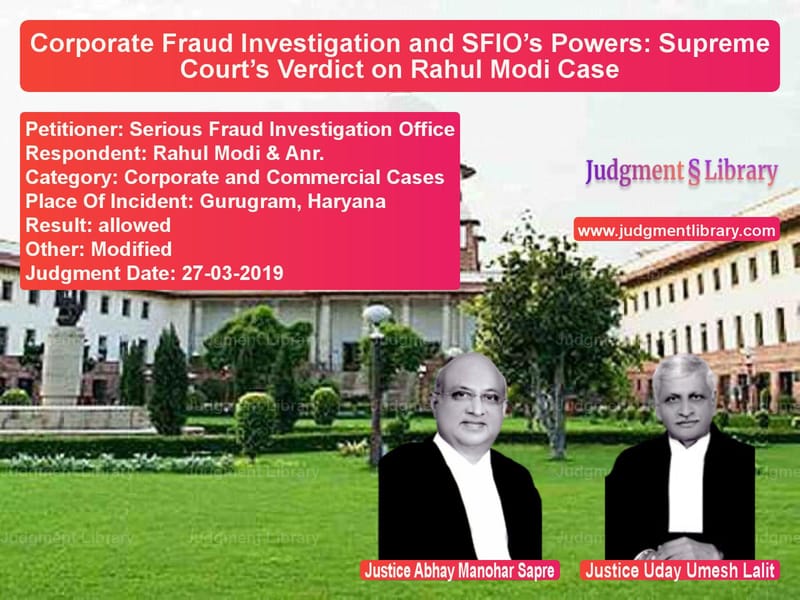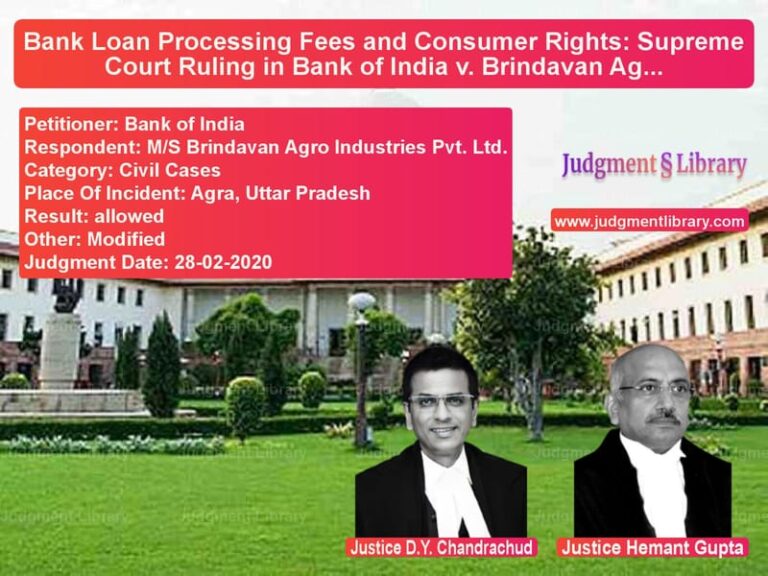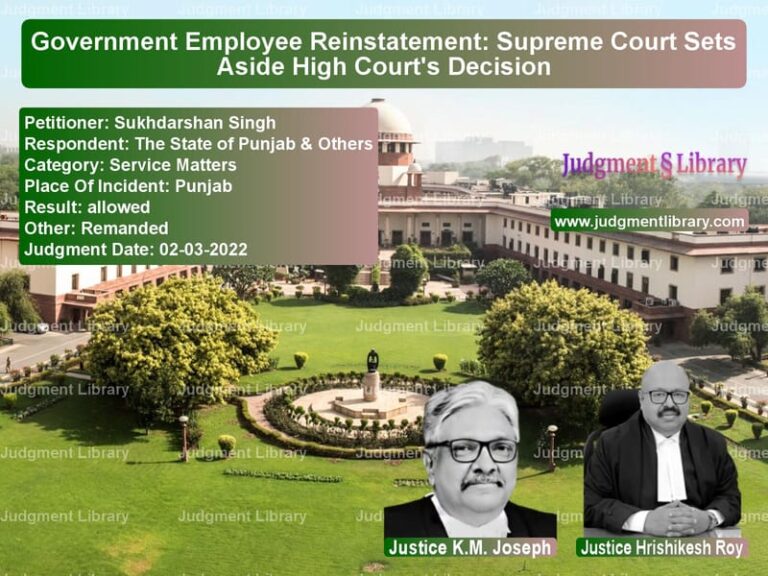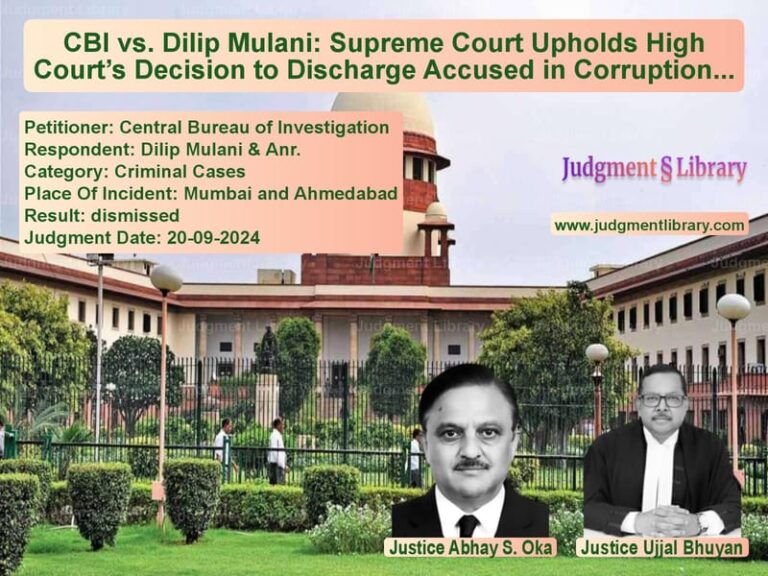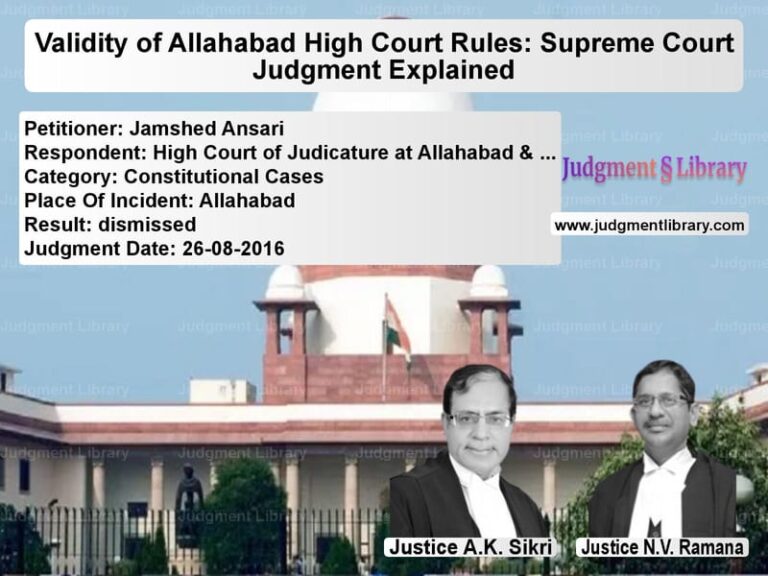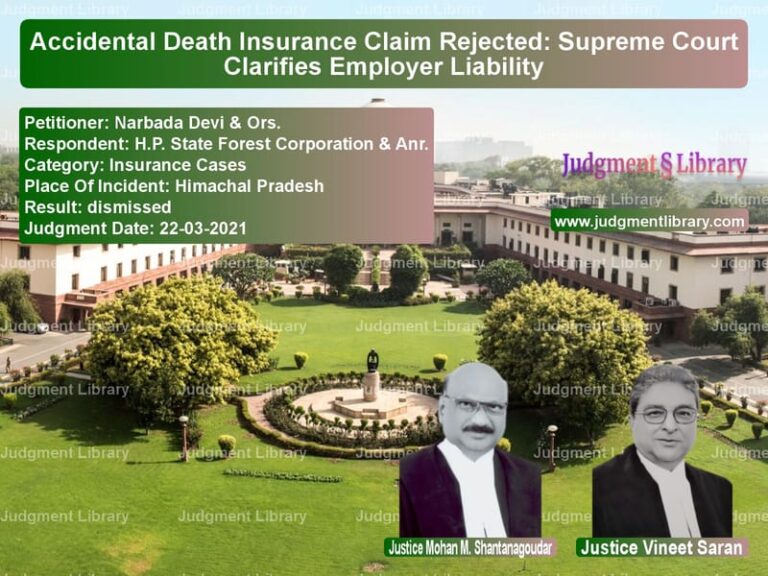Corporate Fraud Investigation and SFIO’s Powers: Supreme Court’s Verdict on Rahul Modi Case
The Supreme Court of India recently ruled on a crucial case concerning the Serious Fraud Investigation Office (SFIO) and its authority under the Companies Act, 2013. The case, Serious Fraud Investigation Office vs. Rahul Modi & Anr., revolved around an extensive investigation into alleged financial fraud and mismanagement involving the Adarsh Group of Companies.
The Court was called upon to determine whether the SFIO had exceeded its legal mandate in continuing its investigation beyond the initially prescribed period, and whether the arrest of the accused was legally sustainable.
Background of the Case
The case stemmed from a government order issued under Section 212(1)(c) of the Companies Act, 2013, directing an SFIO investigation into the financial dealings of the Adarsh Group. The investigation covered multiple Limited Liability Partnerships (LLPs) and companies linked to the Group. The SFIO was tasked with probing fund rotation, mismanagement, negligence, fraud, auditor involvement, and corporate governance violations.
Although the investigation period was initially set at three months from 20 June 2018, SFIO continued its probe beyond this timeline, eventually arresting three individuals—Rahul Modi, Mukesh Modi, and Vivek Harivyasi—on 10 December 2018. The accused challenged their arrests, leading to legal proceedings culminating in the Supreme Court’s review.
Petitioner’s Arguments
The SFIO, represented by the Solicitor General, argued:
- The investigation commenced upon the assignment of the case to SFIO and was set to conclude only when the final report was submitted under Section 212(12) of the Companies Act.
- The time limit for investigation under Section 212(3) was merely directory, not mandatory, meaning SFIO retained jurisdiction beyond the initial three-month period.
- The power of arrest under Section 212(8) remained valid throughout the investigation and was not time-bound.
- The accused were arrested lawfully and remanded to judicial custody by competent courts, precluding the challenge to their detention via habeas corpus petitions.
Respondent’s Arguments
The accused, led by senior counsel, countered:
- With the lapse of the specified investigation period, SFIO’s mandate expired, rendering subsequent actions—including the arrests—illegal.
- SFIO sought and obtained an extension of the investigation period only after the arrests had been made, indicating procedural irregularities.
- Their detention was unconstitutional as the initial arrest was without legal authority, violating their fundamental rights under Article 21 of the Constitution.
Supreme Court’s Observations
The Supreme Court examined the statutory framework governing SFIO investigations and noted:
“The prescription of period within which a report has to be submitted under Section 212(3) is purely directory. Even after the expiry of such stipulated period, the mandate in favor of SFIO and the assignment of investigation under Section 212(1) would not come to an end.”
The Court emphasized that allowing an investigation to expire due to a time lapse would defeat the legislative intent behind corporate fraud investigations, which often require extensive inquiries.
Final Judgment
The Supreme Court ruled:
- The arrests of Rahul Modi and others were lawful and in accordance with SFIO’s powers.
- The High Court’s order directing their release was set aside.
- The accused were directed to surrender before the Special Court, Gurugram, which would then decide on their custody.
The Court concluded:
“If a time limit were mandatory, it would result in the cessation of investigations into serious frauds merely due to procedural delays, which could never have been the legislative intent.”
Implications of the Verdict
This ruling has far-reaching implications:
- Clarification on SFIO’s Powers: The judgment affirms that SFIO retains authority to continue investigations beyond the prescribed period.
- Corporate Governance Enforcement: The decision strengthens the government’s ability to prosecute financial fraud without arbitrary time constraints.
- Judicial Oversight: The ruling reinforces that courts must carefully assess procedural compliance while ensuring justice is served.
By upholding SFIO’s authority and the arrests made under its mandate, the Supreme Court has reinforced the government’s commitment to tackling corporate fraud effectively.
Petitioner Name: Serious Fraud Investigation Office.Respondent Name: Rahul Modi & Anr..Judgment By: Justice Abhay Manohar Sapre, Justice Uday Umesh Lalit.Place Of Incident: Gurugram, Haryana.Judgment Date: 27-03-2019.
Don’t miss out on the full details! Download the complete judgment in PDF format below and gain valuable insights instantly!
Download Judgment: Serious Fraud Invest vs Rahul Modi & Anr. Supreme Court of India Judgment Dated 27-03-2019.pdf
Direct Downlaod Judgment: Direct downlaod this Judgment
See all petitions in Corporate Governance
See all petitions in Fraud and Forgery
See all petitions in Company Law
See all petitions in Judgment by Abhay Manohar Sapre
See all petitions in Judgment by Uday Umesh Lalit
See all petitions in allowed
See all petitions in Modified
See all petitions in supreme court of India judgments March 2019
See all petitions in 2019 judgments
See all posts in Corporate and Commercial Cases Category
See all allowed petitions in Corporate and Commercial Cases Category
See all Dismissed petitions in Corporate and Commercial Cases Category
See all partially allowed petitions in Corporate and Commercial Cases Category

